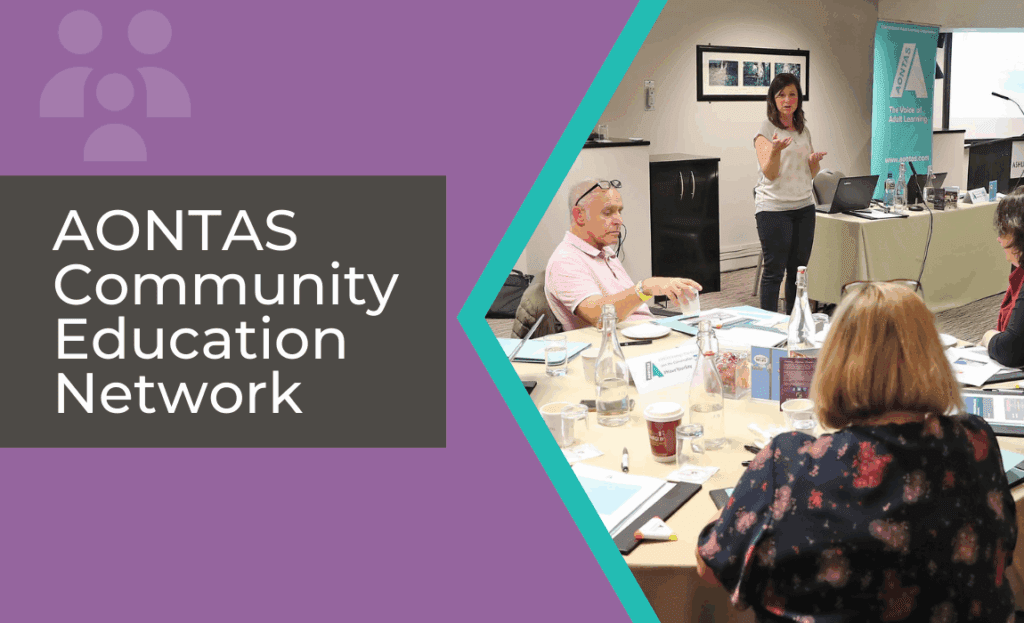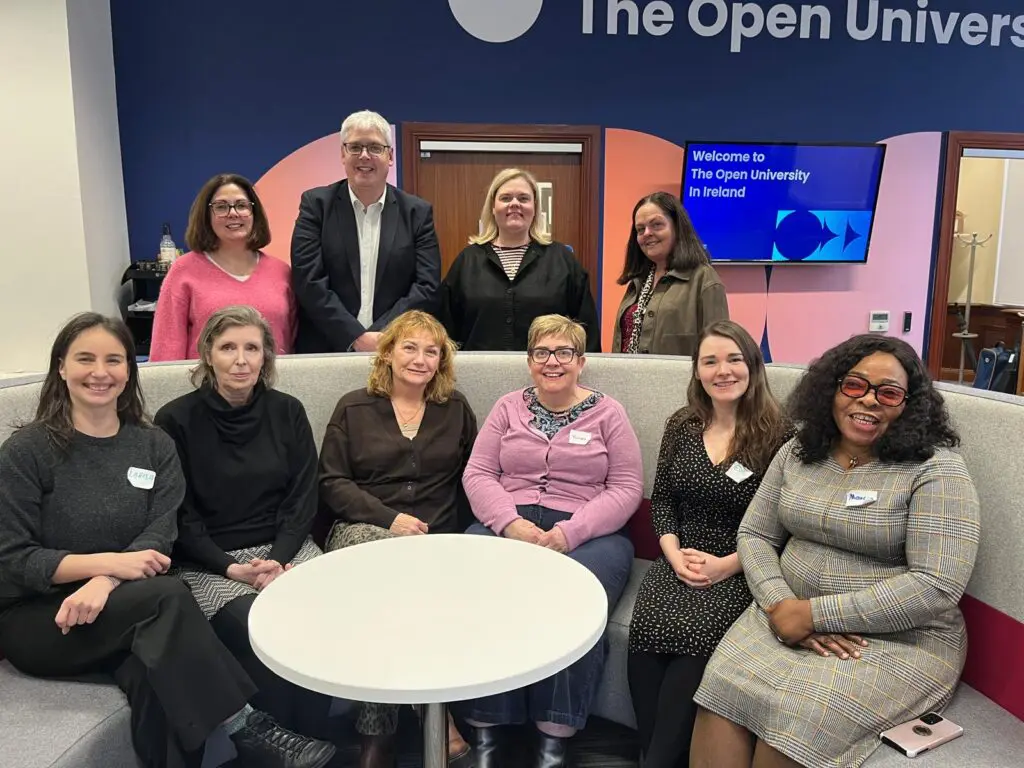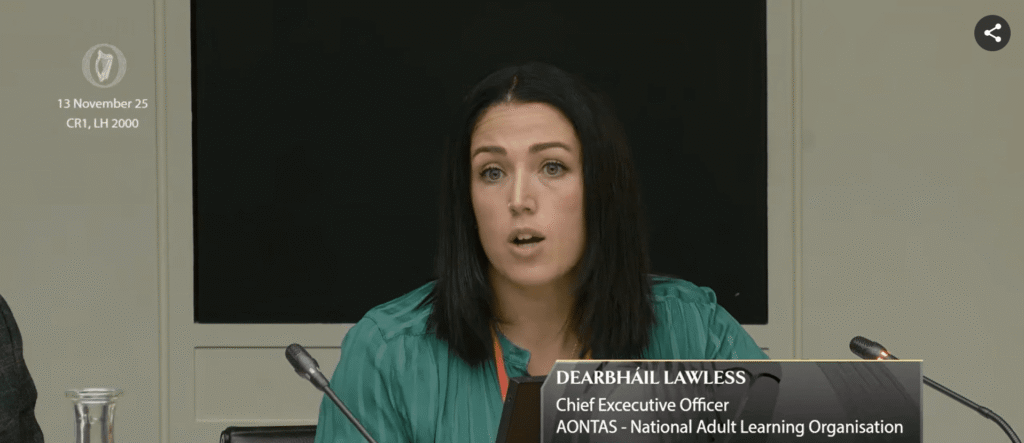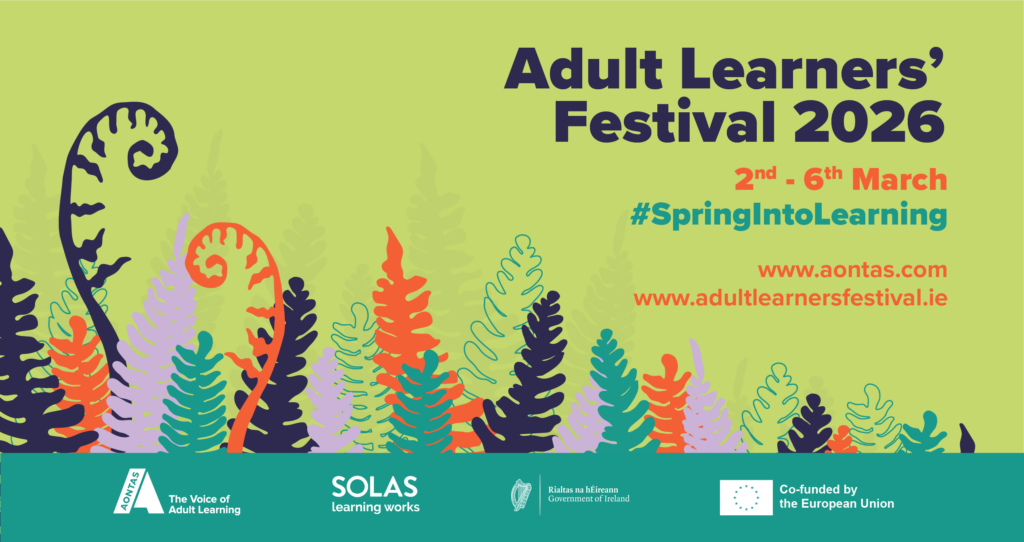By Amy Gibney, AONTAS Community Education Officer
AONTAS has recently learned that two community education centres have been forced to close their doors as a direct impact of the COVID-19 pandemic.
The centres have not only played a major role in supporting their own localities but have also been dedicated members of the AONTAS Community Education Network, and practitioners in the sector. The loss of their contribution will be felt by members of the CEN and will have a significant impact on their local communities.
Community Education and Training Centre, Wexford (CTEC)
Community Education and Training Centre (CTEC), founded in 2003 in Wexford, has provided essential adult education training and employment opportunities and demonstrated excellence in their delivery of health, childcare and business programmes. As a not-for-profit organisation aimed at meeting local needs, their closure will directly impact many people, especially those who are unemployed or living in circumstances which make it harder to access education. They provided crucial one-to-one support, career guidance and computer courses to support learners in a holistic way.
CTEC has closed with immediate effect, with a sudden loss of employment for their staff. The challenges arising from the COVID-19 pandemic are long-lasting and are having an ongoing, significant impact on local communities, community education providers and potentially vulnerable people.
Transformative Recovery College, Westmeath
Westmeath has also seen the closure of the Transformative Recovery College, described as “a Recovery College in the Heart of Our Community”. This was a unique service that provided much needed mental health and wellbeing educational support to community members. Their ethos centred around the fact that people can and do recover from mental health challenges.
Transformative Recovery College used a community support and mental health promotion approach to equip community members with the knowledge and skills to help them get better. Wellness Recovery Action Planning (WRAP) courses were a core part of their provision, empowering community members and their families to live better lives.
The impact of this sudden closure leaves a gap in provision of services in this community. Not-for-profit organisations such as these are vital in providing much-needed resources, especially when public sector waiting lists for mental health supports are so high.
Membership of the AONTAS CEN
The AONTAS CEN is only as good as its members. Any loss of membership is a loss of practitioner expertise and support for other CEN members. Any loss in our numbers means one less practitioner voice to support the collective advocacy work of AONTAS and its members.
Rachel Tucker, Training Manager for CTEC, and Patricia Howlin, who recently retired as CTEC Manager, made a significant contribution to the CEN s, in particular at our Quality Assurance Community of Practice meetings, collaborating and sharing their knowledge and expertise around QQI processes. Alice McDonnell, former Coordinator and Peer Educator with the Transformative Recovery Longford/Westmeath, not only contributed as a CEN member but also provided her time, dedication and knowledge while she served as an AONTAS Board member between 2018 and 2021.
The Impact of the COVID-19 Pandemic
The impact of the COVID-19 pandemic on community centres will continue and some consequences are as yet unknown. AONTAS is concerned that that centre closures will continue if the right supports are not put in place. The lack of in-person courses during the pandemic has affected learner recruitment, participation and retention, particularly for those who were already marginalised.
The funding received by many centres across the country is reliant on learner numbers. This continues to be a major challenge.National statistics reveal a drop in Further Education and Training (FET) participation, particularly in people who left school early and those from more marginalised background (such as migrants, Travellers and people with disabilities). AONTAS research demonstrates the impact of COVID-19 and we recommend a commitment at policy level to sustainable, multi-annual funding for community education.
Cost-of-Living Crisis
The current rise in operational and energy costs means that community centres, many of whom were already facing financial hardship through a lack of consistent and secure funding, will face greater challenges as winter approaches. As part of the research for the National FET Learner Forum, AONTAS (2022) has found that there is already insufficient funding for transport, accommodation and meals to support learners who may not otherwise be in a position to attend educational courses. The energy crisis has the potential to exacerbate this further, depriving learners of vital support.
Community education organisations are an essential part of the community. They not only provide both accredited and unaccredited learning opportunities, but also serve the community in other, less visible ways, such as through the provision of wraparound mental health and social supports. This can be transformative for individuals, their families, communities. Such positive impacts often have intergenerational effects on families with long-lasting positive effects on communities.
AONTAS Advocacy
AONTAS is now calling for the following actions to alleviate this pressure on community education centres and to ensure they can continue to provide essential services within their communities:
- Multi-annual sustainable funding
- Fair pay and working conditions for community education practitioners to secure and protect staff in the sector
- Flexibility that recognises the challenges in supporting engagement post COVID-19 and the need for funding towards recruitment and outreach programmes
- An expansion of the SOLAS Reach Fund spending categories areas to include funding for operational costs
This is a time for community education centres and groups to come together. For more on the Community Education Network, click here.
For further information or questions, contact Suzanne Kyle, AONTAS Senior Community Education Officer, at skyle@aontas.com






